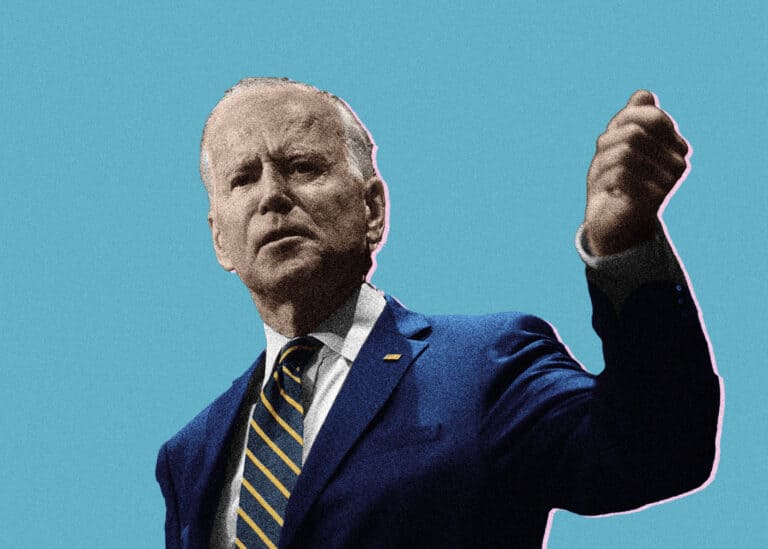
Jonathan R. Harkavy has taught labor and employment law at Wake Forest School of Law and corporate finance at Duke Law School and the University of North Carolina at Chapel Hill School of Law. During the summers of 2018 and 2019, he has been a visiting research fellow in the Labor and Worklife Program at Harvard Law School.
In the shadow of a Supreme Court docket about to nullify women’s autonomy, agency, and humanity, and amplify public danger from carrying guns outside the home, it would be easy to overlook the Court’s quiet focus on employee arbitration. Four decisions (all in cases brought by women) touch directly on workplace arbitration, and the early news is that, for the first time in more than two decades, there is at least some nuance, if not outright change, in the Court’s embrace of forced employment arbitration.
Badgerow v. Walters — Denise Badgerow, an associate financial advisor at a Louisiana firm owned by three “independent franchise advisors” of Ameriprise Financial Services, Inc., raised concerns with Ameriprise and regulatory authorities about workplace harassment. When an Ameriprise compliance officer contacted Badgerow’s employer, she was fired the next day. She arbitrated her termination claim as required by her contract and industry regulations. After the arbitration panel dismissed her claim, Badgerow sought to vacate its award in state court, alleging that it had been fraudulently obtained. Defendants removed the case to federal court and moved to confirm the award under the Federal Arbitration Act. Badgerow argued that the case should be remanded to state court because the federal court lacked jurisdiction to review the award. The lower courts disagreed with Badgerow, concluding that jurisdiction could be based on her underlying federal claims.
The Supreme Court reversed, ruling 8 to 1 that “looking through” to Badgerow’s underlying claims could not create jurisdiction to review the award under FAA sections 9 and 10 — even though that technique can sustain jurisdiction to compel arbitration under a different FAA provision. Henceforth, courts may look only to the party’s arbitration application in determining subject matter jurisdiction to confirm or vacate awards. What’s important here for workers is that oversight of arbitration awards will now likely take place in state courts. Whether that turns out to be quicker, cheaper and fairer remains to be seen.
Morgan v. Sundance, Inc. — Robyn Morgan was fired by Sundance, Inc., a Taco Bell franchisee, after she and other employees complained about pay practices. Morgan’s employment application required individual arbitration of all claims. She nonetheless filed a nationwide collective action against Sundance in federal court alleging violations of the Fair Labor Standards Act of 1938. The employer moved to dismiss without mentioning its arbitration requirement. After denial of that motion, Sundance’s answer likewise failed to mention arbitration. Eight months after suit was filed, following a failed mediation, Sundance changed strategy and moved to compel arbitration. The district court denied the motion, concluding that Sundance had waived its right to insist on arbitration by choosing to litigate. The Eighth Circuit reversed because Morgan failed to prove she had been prejudiced by Sundance’s strategy.
The Supreme Court unanimously reversed, ruling that waiver of an employer’s right to arbitrate cannot be conditioned on proof of prejudice to employees. Note, however, that Morgan’s waiver argument could still go either way on remand, so there’s no guarantee she will ultimately avoid forced arbitration. Thanks to her, however, it should now be easier to hold employers to the way they initially choose to defend. Put in simpler terms, this decision should limit employers’ ability to get two bites at the dismissal apple.
Southwest Airlines Co. v. Saxon — Latrice Saxon was employed by Southwest Airlines Co. as a cargo “ramp supervisor.” Ramp supervisors train and supervise “ramp agents” who physically load and unload baggage, airmail and commercial cargo on and off cross-country aircraft. Ramp supervisors also frequently step in to load and unload cargo alongside the ramp agents. When Saxon concluded that Southwest was failing to pay supervisors proper overtime, she sued Southwest in a putative FLSA collective action.
Southwest moved to dismiss and sought to compel arbitration under the FAA and Saxon’s employment contract. Saxon countered that ramp supervisors are exempt from FAA coverage because they are a “class of workers engaged in foreign or interstate commerce.” The district court ruled for Southwest, holding that the FAA exemption applies only to employees involved in “actual transportation,” not the mere handling of cargo. The Seventh Circuit reversed, holding that loading cargo onto vehicles to be transported in interstate commerce is itself “commerce.”
The Supreme Court unanimously affirmed the Seventh Circuit, holding that ramp supervisors belong to a class of exempt employees under FAA section 1. The Court concluded that the FAA’s plain text shows that cargo loaders — including ramp supervisors who perform that work — are exempt from FAA coverage. While Saxon escaped arbitration under the FAA, note that the district court must now decided whether state law requires her to arbitrate.
Viking River Cruises, Inc. v. Moriana — Angie Moriana, formerly a sales representative for Viking River Cruises, Inc. in California, sued Viking in state court under California’s Private Attorneys General Act (PAGA) for failing to pay her final wages within 72 hours as required by state law. Her suit also sought relief on behalf of former co-workers for multiple state labor code violations. Viking moved to compel arbitration of Moriana’s individual claim and to dismiss the co-worker claims based on Moriana’s waiver of court actions. Viking’s motion was denied based on California precedent that PAGA waivers are unenforceable.
The Supreme Court reversed 8 to 1, ruling that the FAA preempted California’s policy making waiver of individual PAGA claims unenforceable. The Court reasoned that the FAA preempted PAGA’s unique joinder provision that would have required Viking to arbitrate the co-worker claims Moriana joined to her own claim. The upshot is that while the Court unsurprisingly required Moriana to arbitrate her individual claim, the co-worker claims were remanded for dismissal not on the basis of FAA preemption, but only because Moriana now lacked standing to litigate them. Picking up on this rationale, Justice Sotomayor opined in a separate concurrence that either the California courts or the state legislature could confer standing on plaintiffs like Moriana to pursue representative PAGA claims in court. That’s not exactly an unequivocal victory for employers who had sought wholesale FAA preemption in PAGA cases. (For a deeper dive into the decision and its consequences, see Anita’s post from earlier in the week.)
To be sure, this quick look does not suggest that the Court’s romance with compelled individual employment arbitration has soured one iota. Yet, think about how the Court is funneling review of arbitration awards to state courts; restricting the ability of employers to litigate first and then compel arbitration if they don’t succeed; strictly enforcing the FAA’s exclusion of workers engaged in interstate commerce; and recognizing that FAA preemption may not fully hamper operation of a PAGA regime — these four takeaways are at least a welcome departure from the Court majority’s uncompromising promotion of forced workplace arbitration in prior terms. In short, it could have been worse!










Daily News & Commentary
Start your day with our roundup of the latest labor developments. See all
January 16
The NLRB publishes its first decision since regaining a quorum; Minneapolis labor unions call for a general strike in response to the ICE killing of Renee Good; federal workers rally in DC to show support for the Protecting America’s Workforce Act.
January 15
New investigation into the Secretary of Labor; New Jersey bill to protect child content creators; NIOSH reinstates hundreds of employees.
January 14
The Supreme Court will not review its opt-in test in ADEA cases in an age discrimination and federal wage law violation case; the Fifth Circuit rules that a jury will determine whether Enterprise Products unfairly terminated a Black truck driver; and an employee at Berry Global Inc. will receive a trial after being fired for requesting medical leave for a disability-related injury.
January 13
15,000 New York City nurses go on strike; First Circuit rules against ferry employees challenging a COVID-19 vaccine mandate; New York lawmakers propose amendments to Trapped at Work Act.
January 12
Changes to EEOC voting procedures; workers tell SCOTUS to pass on collective action cases; Mamdani's plans for NYC wages.
January 11
Colorado unions revive push for pro-organizing bill, December’s jobs report shows an economic slowdown, and the NLRB begins handing down new decisions